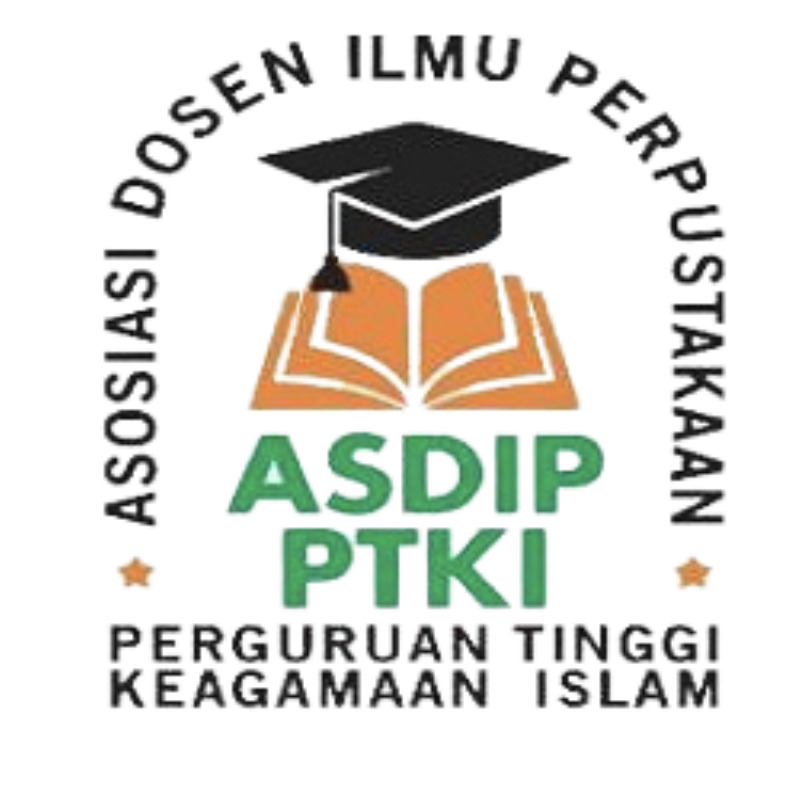Membangun Kolaborasi Pustakawan dan Fakultas dalam Meningkatkan Keterampilan Literasi Informasi Mahasiswa
DOI:
https://doi.org/10.29240/tik.v6i2.5220Keywords:
Information Literacy, Teaching Information Literacy, Information Literacy ProgramAbstract
The fast-moving, unlimited flow of information and the appearance of various publications of information sources both printed and non-printed make students as information users trapped in the many sources of information circulating and do not allow them to evaluate one by one. Therefore, it takes the role of librarians and academics to form an information literacy programme as an effort to improve students' information literacy skills. The purpose of this study is to find out and describe the extent to which the readiness of librarians and lecturers of UIN North Sumatra in building collaboration to form an information literacy learning curriculum programme in lectures. This research uses a descriptive qualitative approach with data analysis techniques using the Miles and Huberman model. The results stated that librarians and lecturers strongly support the implementation of collaboration to integrate information literacy into the learning curriculum. However, in reality, librarians and faculty are still not ready to assign librarians as teaching staff who will teach information literacy learning in the classroom. So the reviewer suggests that UIN North Sumatera library can move more actively to encourage librarians to various skill development activities that can improve teaching competence.
Downloads
References
Aini, R. N. (2018). Kolaborasi Pustakawan dan Mahasiswa: Sebuah Best Practice di Perpustakaan Fakultas Biologi UGM. Academia, 1–9. https://www.academia.edu/36627064/Kolaborasi_Pustakawan_and_Mahasiswa_Sebuah_Best_Practice_di_Fakultas_Biologi
American Library Association. (2000). Information literacy competency standards for higher education. Community and Junior College Libraries, 9(4), 63–67. https://doi.org/10.1300/J107v09n04_09
Cordell, D. (2012). Skype and the Embedded Librarian. Library Technology Reports, 48(2), 8–11.
Farida, I. (2006). Urgensi Pengajaran Information Literacy Pada Tingkat Perguruan Tinggi. Al-Maktabah, 8(2), 34–52.
Fatmawati, E. (2013). Blended Librarian Sebagai Tuntutan Pustakawan Era Digital (pp. 1–6). http://eprints.undip.ac.id/65569/
Hasbana, A. (2017). Standar Kompetensi Pustakawan sebagai Instrumen Asesmen Jabatan Fungsional Pustakawan. Al-Maktabah, 16, 68–79.
Iskandar. (2016). Literasi Informasi : Perspektif Pustakawan. Jupiter, XV(1), 10–15.
Istiana, P. (2016). Kolaborasi Perpustakaan & Stakeholder. JIPI (Jurnal Ilmu Perpustakaan Dan Informasi), 1(2), 241–250. https://doi.org/http://dx.doi.org/10.30829/jipi.v1i2.560
Istiana, P. (2020). Mengapa Literasi Informasi Di Perguruan Tinggi Penting. Media Informasi, 29(1), 95–103. https://doi.org/https://doi.org/10.22146/mi.v29i1.4011
Johnson-Grau, G., Archambault, S. G., Acosta, E. S., & McLean, L. (2016). Patience, Persistence, and Process: Embedding a Campus-wide Information Literacy Program across the Curriculum. Journal of Academic Librarianship, 42(6), 750–756. https://doi.org/10.1016/j.acalib.2016.10.013
Kimberly Y. Franklin. (2014). Faculty/Librarian Interprofessional Collaboration and Information Literacy in Higher Education. Paper Knowledge . Toward a Media History of Documents.
Maitaouthong, T., Tuamsuk, K., & Tachamanee, Y. (2012). The roles of university libraries in supporting the integration of information literacy in the course instruction. Malaysian Journal of Library and Information Science, 17(1), 51–64.
McKinney, P., & Wheeler, E. (2015). Are librarians teachers? Investigating academic librarians’ perceptions of their own teaching skills. Journal of Information Literacy, 9(2), 111–128. https://doi.org/http://dx.doi.org/10.11645/9.2.1985
Miles, M. B., Huberman, A. M., & Saldana, J. (2018). Qualitative Data Analysis: A Methods Sourcebook. SAGE Publications. https://books.google.co.id/books?id=lCh%5C_DwAAQBAJ
Nilsen, C. (2012). 105-Nilsen-En. Buw.Uw.Edu.Pl, June, 1–25. http://www.buw.uw.edu.pl/images/mapa/IFLA2012/papers/105-nilsen-en.pdf
Owusu-Ansah, E. K. (2004). Information Literacy And Higher Education: Placing The Academic Library in the Center of a Comprehensive Solution. The Journal of Academic Librarianship, 30(1), 3–16.
Pemerintah Negara Republik Indonesia. (2007). Undang-Undang Republik Indonesia Nomor 43 Tahun 2007 Tentang Perpustakaan. http://digilib.unila.ac.id/4949/15/BAB II.pdf
Permata Ganggi, R. I. (2017). Pendidikan Pemakai di Perpustakaan Sebagai Upaya Pembentukan Pemustaka yang Literasi Informasi. Khizanah Al-Hikmah : Jurnal Ilmu Perpustakaan, Informasi, Dan Kearsipan, 5(1), 121–128. https://doi.org/10.24252/kah.v5i1a11
Pham, H. T., & Tanner, K. (2014). Collaboration between academics and librarians: A literature review and framework for analysis. Library Review, 63(1–2), 15–45. https://doi.org/10.1108/LR-06-2013-0064
Ragains, P. (2006). Information Literacy Instruction that Works: A Guide to Teaching by Discipline and Student Population. Neal-Schuman Publishers. https://books.google.co.id/books?id=lJqPQgAACAAJ
Rahmawati, N. A. (2019). Urgensi Kelas Literasi Informasi Bagi Mahasiswa di Perpustakaan. Jurnal Perpustakaan, 10, 51–56.
Rahmawati, N. A. (2021). Meningkatkan Kemampuan Literasi Informasi Mahasiswa Dengan Pembentukan ILC ( Informa- tion Literacy Class ) Online Di UPT Perpustakaan UPN Veteran Yogyakarta. 4(1), 93–102.
Shank, S. J., & John, B. and. (2004). The blended librarian librarians. C&RL News, August, 372–375.
Shao, B. X., & Purpur, G. (2016). Effects Of Information Literacy Skills On Student Writing And Course Performance. 42(2016), 670–678.
Sitti Husaebah Pattah. (2014). Literasi Informasi: Peningkatan Kompetensi Informasi Dalam Proses Pembelajaran. Khizanah Al-Hikmah: Jurnal Ilmu Perpustakaan, Informasi, Dan Kearsipan, 2(2), 108–119.
Standar Nasional Indonesia. (2009). SNI 7330:2009 Perpustakaan perguruan tinggi.
Wulandari, R. A. (2021). Tantangan dan Peluang Pelaksanaan Kelas Literasi Informasi Secara Daring di Masa Pandemi Covid-19. Pustakaloka, 13(1), 59–72. https://doi.org/https://doi.org/10.21154/pustakaloka.v13i1.2538
Downloads
Published
Issue
Section
Citation Check
License
Authors who publish with Tik Ilmeu : Jurnal Ilmu Perpustakaan dan Informasi agree to the following terms:
- Authors retain copyright and grant the journal right of first publication with the work simultaneously licensed under a Creative Commons Attribution-NonCommercial-ShareAlike 4.0 International License (CC BY-NC-SA 4.0) that allows others to share the work with an acknowledgment of the work's authorship and initial publication in this journal.
- Authors are able to enter into separate, additional contractual arrangements for the non-exclusive distribution of the journal's published version of the work (e.g., post it to an institutional repository or publish it in a book), with an acknowledgment of its initial publication in this journal.
- Authors are permitted and encouraged to post their work online (e.g., in institutional repositories or on their website) prior to and during the submission process, as it can lead to productive exchanges, as well as earlier and greater citation of published work (See The Effect of Open Access).







 This work is licensed under a
This work is licensed under a 